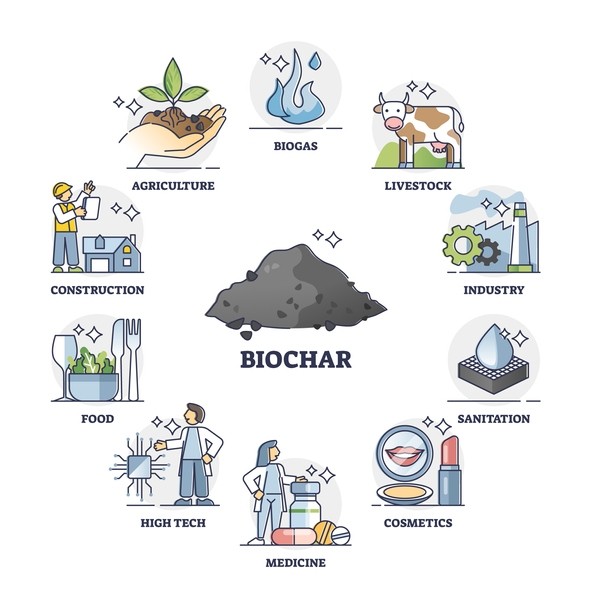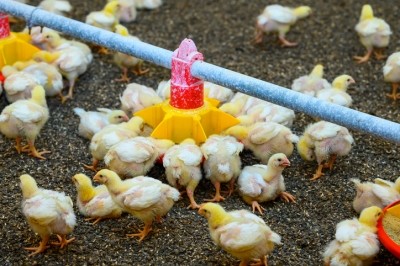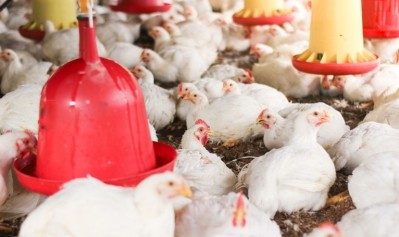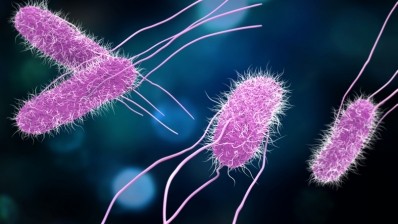Study: Biochar boosts broiler performance

Moreover, the study found no negative impact on the birds' native beneficial intestinal bacteria by the inclusion of biochar in their diets.
Biochar can be produced from biomass including food processing waste, woody biomass, fibrous grassy material or from a variety of sludges or manures.
Researchers based at Germany’s Leibniz Institute for Agricultural Engineering and Bioeconomy and the Basque Institute for Agricultural Research and Development in Spain conducted a study to assess the consequences of including a commercial biochar in broiler diets.
They evaluated the impact of the feed ingredient on productive performance, pH of digestive organs, cecum short chain fatty acid (SCFA) profile and bacterial community.
In terms of the study methodology, they fed 720 one day-old male Ross 308 broilers with either a control diet (CTR) with zero biochar or a biochar supplemented feed at an inclusion rate of 30g/kg, during the starter phase (1–21 days) and grower-finisher periods (22–42 days).
Findings
They noted that, in terms of performance, birds, during the starter phase, that had been fed a diet with biochar, showed lower daily weight gain (DWG) and higher feed conversion ratio (FCR) but similar feed intake (FI) compared to the birds on the control diet.
However, during the grower-finisher period, broilers sampling the biochar feed had increased DWG and a reduction in FCR along with similar FI when set against the birds in the control group, reported the team.
For the entire period of feeding, animals fed with biochar showed an increased DWG, body weight, and European production efficiency factor, as well as reduced FCR and similar FI compared to the birds being fed the control diet.
The researchers observed that the pH of digesta of crop, proventriculus, gizzard, ileum or cecum were not affected by the biochar supplementation.
Birds fed with biochar showed increased acetic and caproic contents, and similar propionic, butyric, isobutyric, valeric and isovaleric contents when compared to the broilers in the CTR group, they said.
They noted that biochar supplemented feed did not influence cecal bacterial species richness and diversity but altered community structure by increasing relative abundance of Ruminococcus, Blautia and undefined genera, and decreasing Lactobacillus, Coprococcus, Desulfotomaculum, Oscillospira, Clostridium and undefined genera.
Concluding, the authors said that despite the reduction in the productive performance of the broilers in the biochar group during the starter phase, the growth seen during the grower-finisher period amply compensated, resulting in greater performance and production efficiency over the entire cycle with no negative impact on the pH of digestive organs and an increase in acetate contents in the caecum.
“The greater performance could be explained by minor microbiota shifts observed at Operational Taxonomic Unit (OUT) level without disturbing the native beneficial intestinal bacteria as expressed by the retained richness and diversity of the broilers cecal microbiota.”
A review from 2019 found that the use of biochar as a feed additive has the potential to improve animal health and feed efficiency as well as reducing nutrient losses and greenhouse gas emissions.
Source: Animal Feed Science and Technology
DOI: https://doi.org/10.1016/j.anifeedsci.2021.115039
Title: Assessing the potential use of a feed additive based on biochar on broilers feeding upon productive performance, pH of digestive organs, cecum fermentation and bacterial community
Authors: I Goiri et al








